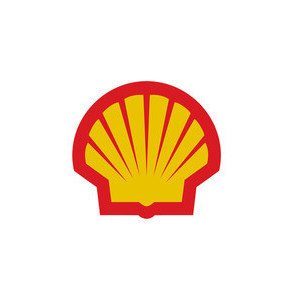Shell to build one of Europe's biggest biofuels facilities

September 16, 2021
BY Shell
Royal Dutch Shell plc today announced a final investment decision to build an 820,000-tonnes-a-year biofuels facility at the Shell Energy and Chemicals Park Rotterdam, the Netherlands, formerly known as the Pernis refinery. Once built, the facility will be among the biggest in Europe to produce sustainable aviation fuel (SAF) and renewable diesel made from waste.
A facility of this size could produce enough renewable diesel to avoid 2.800,000 million metric tons of carbon dioxide (CO2) emissions a year, the equivalent of taking more than 1 million European cars* off the roads.
The new facility will help the Netherlands and the rest of Europe to meet internationally binding emissions reduction targets. It will also help Shell to meet its own target of becoming a net-zero emissions energy business by 2050, in step with society’s progress towards achieving the climate goals of the Paris Agreement. Advanced production methods will be used to make the fuels. The facility is expected to use technology to capture carbon emissions from the manufacturing process and store them in an empty gas field beneath the North Sea through the Porthos project. A final investment decision for Porthos is expected next year.
“Today’s announcement is a key part of the transformation of one of our major refineries into an energy and chemicals park, which will supply customers with the low-carbon products they want and need,” said Huibert Vigeveno, Shell’s downstream director.
Advertisement
As part of its Powering Progress strategy, Shell is transforming its refineries (which numbered 14 in October 2020) into five energy and chemicals parks. Shell aims to reduce the production of traditional fuels by 55 percent by 2030 and provide more low-carbon fuels such as biofuels for road transport and aviation, and hydrogen. The Energy and Chemicals Park Rotterdam is the second park to be announced, following the launch in July of the Energy and Chemicals Park Rheinland, in Germany.
The Rotterdam biofuels facility is expected to start production in 2024. It will produce low-carbon fuels such as renewable diesel from waste in the form of used cooking oil, waste animal fat and other industrial and agricultural residual products, using advanced technology developed by Shell.
A range of certified sustainable vegetable oils, such as rapeseed, will supplement the waste feedstocks until even more sustainable advanced feedstocks are widely available. The facility will not use virgin palm oil as feedstock.
Advertisement
Sustainable aviation fuel (SAF) could make up more than half of the 820,000-tonnes-a-year capacity, with the rest being renewable diesel. Shell can adjust this mix to meet customer demand.
These low-carbon fuels will help to meet growing demand from the transport sector, including hard-to-decarbonize sectors such as heavy road transport and aviation. SAF currently accounts for around 0.1% of global aviation fuel. Shell’s investment will help increase SAF production, which is vital if aviation is to cut carbon emissions.
Marjan van Loon, president director of Shell Netherlands BV, said, “Shell has been on the road to a lower-carbon future for some time. This investment is an important step as we transform the Energy and Chemicals Park Rotterdam from a traditional refinery into a sustainable energy park. The project will mean hundreds of millions of dollars of investment each year during construction, it will create hundreds of jobs, and help to maintain the facility’s competitiveness for years to come.”
Related Stories
The U.S. Energy Information Administration maintained its forecast for 2025 and 2026 biodiesel, renewable diesel and sustainable aviation fuel (SAF) production in its latest Short-Term Energy Outlook, released July 8.
XCF Global Inc. on July 10 shared its strategic plan to invest close to $1 billion in developing a network of SAF production facilities, expanding its U.S. footprint, and advancing its international growth strategy.
U.S. fuel ethanol capacity fell slightly in April, while biodiesel and renewable diesel capacity held steady, according to data released by the U.S. EIA on June 30. Feedstock consumption was down when compared to the previous month.
XCF Global Inc. on July 8 provided a production update on its flagship New Rise Reno facility, underscoring that the plant has successfully produced SAF, renewable diesel, and renewable naphtha during its initial ramp-up.
The USDA’s Risk Management Agency is implementing multiple changes to the Camelina pilot insurance program for the 2026 and succeeding crop years. The changes will expand coverage options and provide greater flexibility for producers.
Upcoming Events










